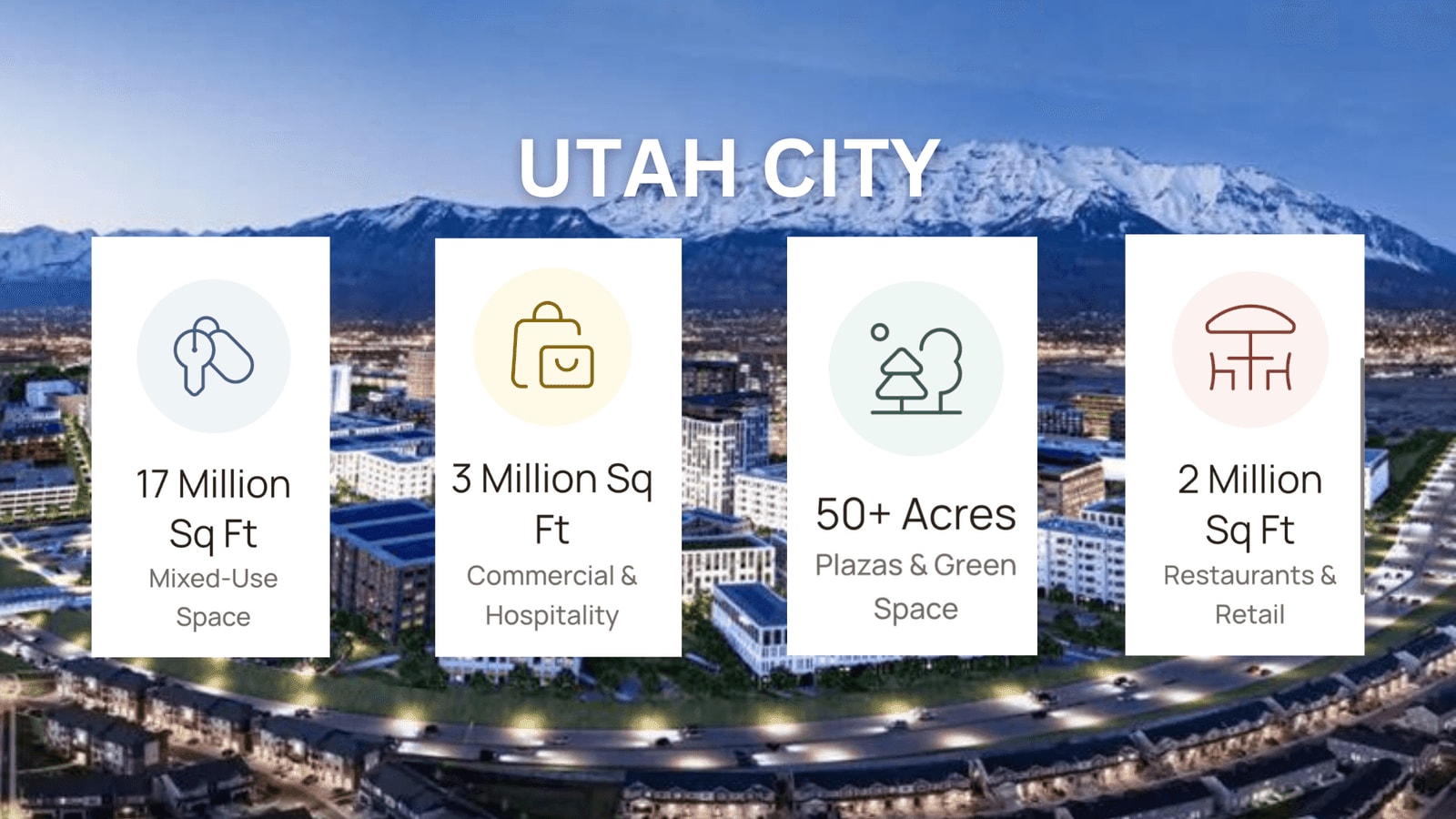Utah City
First up, have you heard the buzz about the newest urban center to enter Utah County. It’s designed to be a walkable community with sustainable living situations, exciting shopping and entertainment, plus a world-class science institute. Built across 700 acres along Utah Lake, the name Utah City was chosen to create a recognizable “big city” name (think NYC, Oklahoma City, Kansas City, etc). Here’s what you need to know about this new development:
- Home of The Huntsman Cancer Institute’s newest campus breaking ground the end of 2024.
- Grand park with $20 million development for the first phase, including a “resort level” community pool.
- LEED Platinum development (energy efficient design in residences and commercial buildings).
- FrontRunner Station
- Community Promenade public space
New Sports Franchise
You’ve heard the news that Utah will have its own National Hockey League franchise, relocating the Arizona Coyotes. However, the debate of where the team will be housed has been a contested topic. We’ve seen a trend of professional sports stadiums leaving downtown metropolitan areas and for a minute it seemed as though our new NHL stadium would go that route. However, owner Ryan Smith didn’t get a lot of support from community leaders to go that route.
The new plan — now that the NHL in Utah is a reality — is to remodel the nearly 33-year-old Delta Center and focus on ways to improve the city experience around the arena. It will also keep the Utah Jazz, the other team Smith owns, in downtown Salt Lake City.
The concept of a downtown revitalization zone has become a hot topic over the past three months. Smith Entertainment Group has applied to partner with Salt Lake City on a downtown revitalization zone. The zone, covering up to 100 acres around an NBA or NHL arena, aims to enhance the downtown area.
While the proposal details are not yet public, hints suggest a focus on increasing residential spaces and amenities to encourage people to spend more time in the area before or after events. This includes potential adjustments to existing downtown locations like the Salt Palace Convention Center to better integrate with the surrounding area.
Funding remains a significant challenge, with the bill authorizing Salt Lake City to implement a sales tax increase of up to 0.5% for 30 years within its boundaries to finance projects or repay bonds for improvements in the district. City Councilman Darin Mano is cautiously optimistic about the proposal but emphasizes the weightiness of approving such a tax increase.
Approval would also require state endorsement, with a deadline set for the end of the year. While uncertainties remain, Smith Entertainment Group emphasizes the broader vision of the plan, aiming to create a dynamic hub for Salt Lake City's growth, encompassing not just sports but also arts, education, and community engagement.
Utah's Economy
Recent discussion at the Kem C. Gardner Policy Institute has highlighted the continued strength of Utah's economy while addressing looming challenges such as workforce shortages and housing affordability.
Despite maintaining a steady growth rate slightly above the national average, Utah's economic expansion has slowed, partly due to labor shortages and high housing costs. Future growth is predicted to follow more closely with national growth rates, rather than keeping a pace that is higher than the national average.
"We're being constrained in our growth by the availability of labor. We're having challenges getting people here in the state to work, and I'm convinced housing is a central part of that. We're dealing with this shortage (and) very high prices," said Phil Dean, chief economist at the Kem C. Gardner Policy Institute.
Analysts emphasize the need for collaboration between urban and rural Utah to sustain economic development. Representative Carl Albrecht underscores the mutual benefits of this relationship, with urban growth potentially driving economic activity toward rural areas. Rural Utah contributes vital resources like energy and agriculture to the state's economy.
Albrecht's legislative efforts, including a bill supporting coal energy, reflect the state's commitment to balancing affordability, reliability, and sustainability in energy policy. Despite disagreements on issues like housing and energy, there is optimism about Utah's ability to find solutions through collaboration and unified efforts across urban and rural regions.















